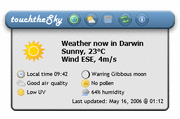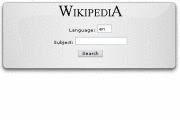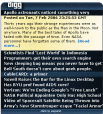Device browser to gain standalone Web app support
May 30, 2006 — by LinuxDevices Staff — from the LinuxDevices Archive — views Opera has announced a new version of its SDK (software development kit) for embedded devices such as TVs, set-top boxes, portable media players, and game consoles. Opera 9 for Devices, due in Q4, will add support for “Widgets” — small, standalone, Web standards-based user interface elements that can “interact with Web… applications and Web services without requiring developers to write native code.”
Opera has announced a new version of its SDK (software development kit) for embedded devices such as TVs, set-top boxes, portable media players, and game consoles. Opera 9 for Devices, due in Q4, will add support for “Widgets” — small, standalone, Web standards-based user interface elements that can “interact with Web… applications and Web services without requiring developers to write native code.”
Opera Widgets are small programs written using Web standards such as AJAX, HTML, JavaScript, XML, CSS, DOM, RSS, SVG, and Canvas. They are rendered outside of the browser window, and without window decorations, and thus appear to be standalone applications supporting partial- and full-screen modes, as well as on- and off-line operation.





Opera Widget examples
Widgets are named with a .wdgt extension, and are served from httpd daemons configured to associate the extension with an “application/x-opera-widgets” document type. When users click on them, they are asked whether they wish to install and run the widget.
Opera first introduced Widgets last month, in a beta release of its desktop Web browser product. The company maintains a community website that currently hosts about 70 user-contributed widgets.
Scott Hedrick, Executive VP of Devices at Opera, stated, “Widgets open the door for advanced Web-based dynamic content, services, and promotions on a wide range of devices. Through these Web-based applications end users can view content and services incorporating the latest weather, sports, news headlines, TV guide information, or casual gaming.”
Availability
Opera 9 for Devices is expected late this year. Opera 8.5 is available now.
This article was originally published on LinuxDevices.com and has been donated to the open source community by QuinStreet Inc. Please visit LinuxToday.com for up-to-date news and articles about Linux and open source.